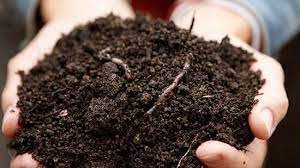Progress in the depths of winter
With February upon us, we are knee deep in the Winter snow and many of us are hunkered down inside for much of the time. For those of us in areas too cold to be outside much or to really work the ground, what can we do during the winter to make sure we keep progressing?
Now is a good time to start planning next season’s garden. A little planning can go a terribly long way to ensuring that we co tongue building our soil and providing a stronger environment moving forward. This is also a good time to hone in your composting skills and to make sure you’ve got plenty of food for your soil come springtime.
A lot of people think that because they are using regenerative techniques, it’s ok to have the same garden year after year and continue to plant the same things everywhere. There is some truth to that, but continuing to practice crop rotation will help ensure the best results, especially if you have a vegetable specific garden. Even though we are constantly working to build our soil, it is still important to shake things up and move some stuff around. Different plants utilize different nutrients and gather those nutrients from different layers of the soil horizon. Because of that, it’s definitely still good practice to adjust things seasonally just to ensure you are putting too much strain on one area of your garden. This is especially important when it comes to fast growing things like corn or nutrient dense veggies like peppers and tomatoes. Try putting them on the other side of the garden this year.
Winter is also a great time to work on your composting. Because of the cold weather outside, it is often easier to see how well our compost is working. Even though it’s freezing outside, your compost pile should still be steaming hot if it’s doing its things. This is a great time of year to gather sources of carbon for both your compost and your garden directly. Add fallen branches and twigs to your compost pile. These may take longer to break down but they support the growth of fungi as well which is extremely important to soil and plant health. It’s also a good idea to cover garden beds and paths with fallen leaves or cardboard. These will break down, adding carbon to the soil while also protecting your soil of erosion.
Although we still have a bit of winter left, it’s definitely not too early to begin planning for next year. Remember, the early bird catches the worm and our gardens all need more worms.

